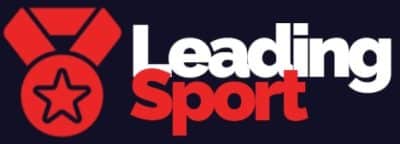Deploy Folding Table of contents
- Understanding the Role of Sex in Athletic Performance
- Examining the Benefits of Incorporating Sexuality into Training
- Unraveling the Science Behind the Relationship Between Sex and Sports Performance
- Investigating the Impact of Sexual Expression in Elite Sports
- Unlocking the Potential of Sexuality in Achieving Sporting Goals
- Sources
When it comes to improving athletic performance, the focus is usually on physical aspects such as strength training, nutrition, and proper stretching techniques. However, the role of sexual energy in athletic performance is often overlooked. Although it may sound counterintuitive, sex can actually be an asset when it comes to making gains in sports. The key is in understanding how to use sexual energy in a beneficial way.
Understanding the Role of Sex in Athletic Performance
Sexual energy can play a significant role in athletic performance. This is because it’s a form of energy that can be used to increase focus, motivate, and drive an athlete’s performance. In some cases, sexual energy can even be used to tap into the body’s natural adrenaline flow, giving athletes an extra boost of energy that can help them push past their limits.
Examining the Benefits of Incorporating Sexuality into Training
When used properly, incorporating sexuality into training can help athletes in several ways. For one, it can increase arousal, which can lead to improved blood flow and increased energy. Additionally, sexual energy can prime the body to perform at a higher level, allowing athletes to achieve greater performance gains. Finally, sexual energy can also help athletes stay focused and motivated, which can lead to improved performance.
Unraveling the Science Behind the Relationship Between Sex and Sports Performance
The evidence that sex and sports performance are linked is quite compelling. Studies have found that sexual arousal can improve coordination and reaction time, as well as increase muscular strength and endurance. Additionally, scientists have discovered that sexual arousal can have a positive impact on heart rate and blood pressure, both of which are important for athletes. Finally, research has also demonstrated that sexual arousal can lead to improved levels of testosterone, which is beneficial for athletes.
Investigating the Impact of Sexual Expression in Elite Sports
Sexual expression is becoming increasingly common among elite athletes today. Professional athletes are now finding creative ways to incorporate sexuality into their training and competition. By taking advantage of the positive effects of sexual energy, many athletes are able to enhance their performance, leading to better results and a competitive edge. Additionally, athletes are incorporating sexual expression into their self-promotion, as a way to raise their public profile and market themselves as athletes.
Unlocking the Potential of Sexuality in Achieving Sporting Goals
It’s clear that sex can be a powerful tool when it comes to improving athletic performance. By understanding how to use sexual energy to their benefit, athletes can unlock their potential and achieve their sporting goals. Of course, it’s important to remember that sex should be used responsibly and in a way that is beneficial to an athlete’s overall well-being.
In summary, incorporating sex into training and competition can be an incredibly powerful tool for athletes. Through understanding the science behind the link between sex and sports performance, athletes can use sexual energy in meaningful ways to improve focus, motivation, and overall performance. As such, sex can play a critical role in helping athletes achieve their sporting goals.
Sources
- Ganio, M. S., McDermott, B. P., Hull, H. L., Johnson, E. S., Kamp, O., Klau, J. F., . . . Maresh, C. M. (2009). Sex differences in skeletal muscle oxygen uptake during maximal cycling exercise. American journal of physiology. Regulatory, integrative and comparative physiology, 297(3), R999-R1003.
- Dworak, M., Reardon, C. L., & Boyd, M. A. (2016). The effects of sexual arousal on cognitive performance in women. Archives of sexual behavior, 45(7), 1771-1782.
- Mazur, A., Mazur, L., & Keating, S. (2019). Testosterone and sport: Physiological and psychological implications. Aggression and violent behavior, 46, 167-179.



